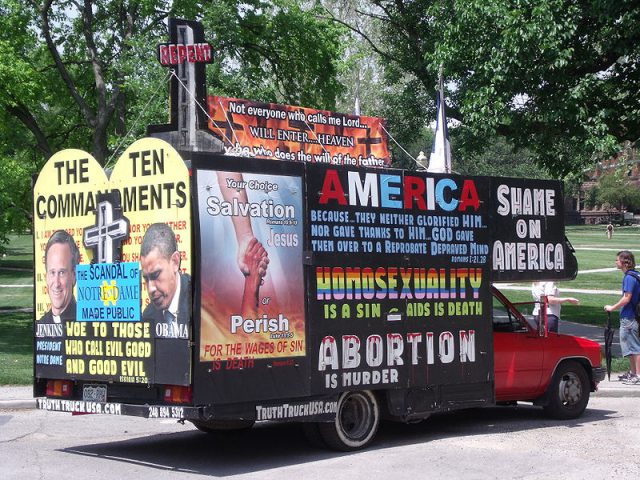What word should gay and lesbian journalists—and journalists covering LGBT issues—use to describe anti-gay discrimination and hatred? Not “homophobia,” according to a recent update to the Associated Press Stylebook, the usage manual used by news organizations around the world.
Politico reported Monday that AP’s online style book “now says that ‘-phobia,’ ‘an irrational, uncontrollable fear, often a form of mental illness’ should not be used ‘in political or social contexts,’ including ‘homophobia’ and ‘Islamophobia.’”
In AP’s online forum, a user asked Deputy Standards Editor David Minthorn why the change was made. “Phobia means irrational, uncontrollable fear, often a form of mental illness. In terms like homophobia, it’s often speculation. The reasons for anti-gay feelings or actions may not be apparent. Specifics are better than vague characterizations of a person’s general feelings about something,” Minthorn wrote.
The National Lesbian and Gay Journalists Association (NLGJA), which publishes its own style guide for LGBT terminology, defines homophobia as “fear, hatred or dislike of homosexuality, gay men and lesbians” and advises journalists to “restrict to germane usage, such as in quotations or opinions.”
In an email to the Poynter Institute, NLGJA President Michael Triplett elaborated on the AP’s decision. “The general sense is that the AP is probably correct in terms of the literalism of the word “homophobia” and that it really is not the best way to describe anti-gay actions or motives. On the other hand, it leaves writers without a term — like racism or sexism — that describes anti-gay sentiment,” he wrote.
The Baltimore Sun’s language columnist John E. McIntyre defended the word in a post on Tuesday. “The word homophobia has been in widespread use over the past forty years. In some contexts it identifies a revulsion so irrational that it amounts to a mental disorder; in others, it identifies a pronounced dislike with cultural and political elements. It gets used because it is useful in describing an identifiable phenomenon.”


What Do You Think?